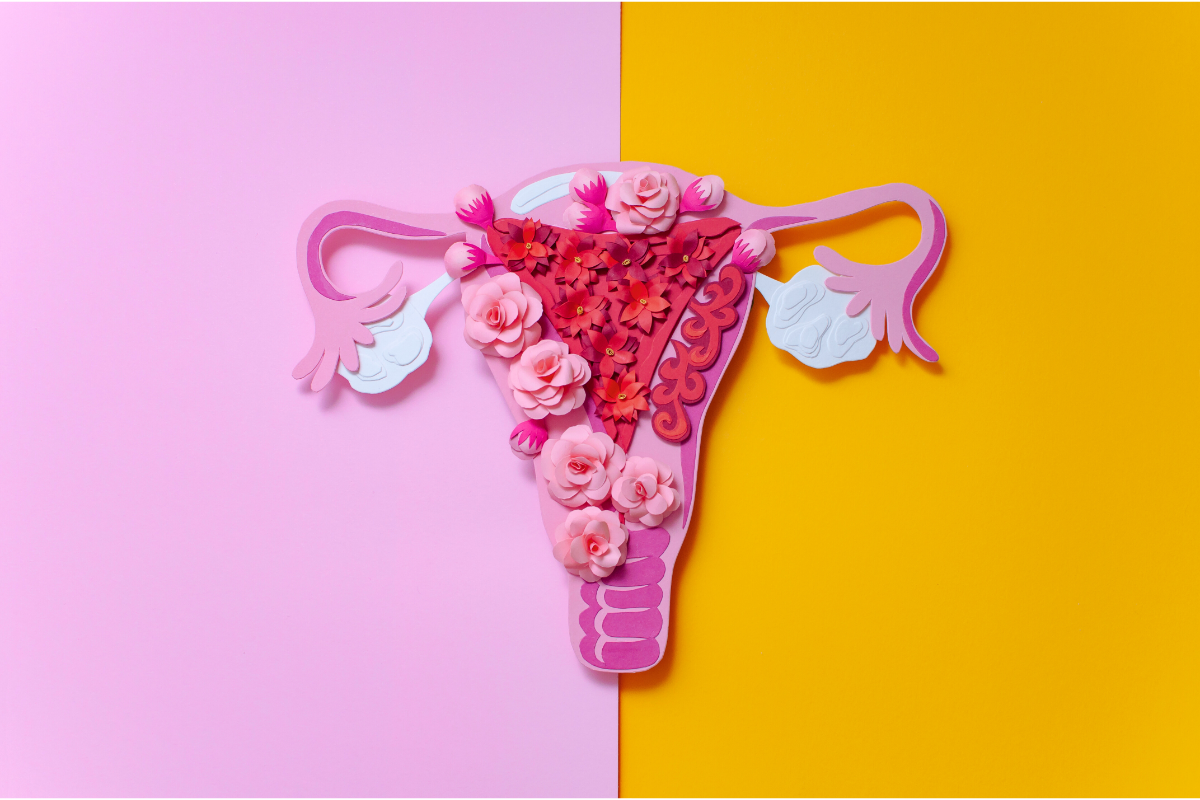Endometriosis is a condition that remains shrouded in mystery and suffering for those who experience it. Characterised by the presence of tissue similar to the lining of the womb outside the uterus, it causes pain, inflammation and sometimes even more serious complications such as infertility. In the quest for relief and a more natural, body-friendly approach, homeopathy stands out as a gentle alternative, promising personalised care for this condition. This article delves into the heart of this complex gynaecological condition, exploring how homeopathy can offer respite and improve quality of life for women affected.
Understanding endometriosis and its symptoms
The enigma of endometriosis
Endometriosis is much more than a simple menstrual complication. It occurs when fragments of endometrial tissue, which should normally be expelled during menstruation, are found and proliferate outside the uterus. This erroneous migration creates a sometimes confusing clinical picture, marked by chronic pelvic pain, particularly painful periods and, in some cases, fertility problems.
Symptoms and warning signs
The symptoms of endometriosis vary greatly, sometimes making diagnosis complex. The most common include intense menstrual pain, pelvic pain outside the period, pain during sexual intercourse and urinary or intestinal symptoms during menstruation. It is crucial to listen to the signals our body sends us and to consult a healthcare professional for appropriate treatment.
A search for causes and solutions
Despite advances in research, the exact causes of endometriosis are still partly unknown. Some theories suggest a combination of genetic, immune and environmental factors. Faced with this multifaceted disease, homeopathy offers a treatment approach that respects the body’s natural balance, aiming not only to alleviate symptoms but also to treat the patient’s underlying condition, using a holistic, individualised approach.
The homeopathic approach
Tailor-made medicine
Homeopathy, an alternative medicine par excellence, is based on the principle of similarity: “like can be cured by like”. This approach, which is far removed from conventional treatments, involves using very small quantities of natural substances to stimulate the body’s self-healing capacities. In the case of endometriosis, homeopathy aims to reduce inflammation, ease pain and balance hormonal disorders, taking into account the individuality of each patient.
Towards a holistic approach
Homeopathy does not limit itself to treating symptoms in isolation; it seeks to understand the patient as a whole. This involves careful listening and a detailed assessment of all aspects of the patient’s life – emotional, physical and environmental – in order to provide a truly personalised treatment. This method not only tackles the manifestations of endometriosis, but also strengthens the patient’s terrain, thereby reducing the risk of recurrence.
Specific homeopathic treatments for endometriosis
In the fight against endometriosis, homeopathy offers a number of specific remedies designed to relieve pain and treat the underlying condition. Well-targeted treatment can make a significant difference to patients’ quality of life.
Choosing the right remedy
Homeopathic treatment of endometriosis is based on the careful selection of remedies according to each woman’s specific symptoms. Among the many remedies available, a few stand out for their effectiveness in relieving the common symptoms of this condition.
- Belladonna: Ideal for sudden, sharp pains that intensify rapidly, often accompanied by a sensation of heat.
- Sepia: Recommended for shooting pains or a feeling of heaviness in the pelvis, as well as for the symptoms of lethargy and indifference that can accompany endometriosis.
- Nux Vomica: Useful for patients suffering from spasms and painful contractions, particularly when associated with digestive symptoms.
Advice on use and follow-up
The use of these remedies should be guided by an experienced homeopath, able to adjust treatments over time and respond to changes in the patient’s symptoms or general condition. Regular monitoring ensures that the treatment is effective and that prescriptions can be adapted to the changing needs of each individual.
- Rauwolfia serpentina 30 CH: Renowned for its soothing properties, this remedy is often prescribed as a background treatment, helping to alleviate persistent pain and promote gradual healing of endometriosis.
- Lachesis 9 CH: For women experiencing intense pain in the lower abdominal area or left ovary during their periods, Lachesis 9 CH is effective. The recommended dose is 3 granules, three times a day.
- Calcarea carbonica 9 CH: This remedy is particularly suitable for pain felt on the left side of the uterus during menstruation, providing significant relief.
- Tigrum lilium 9 CH: If the pain is located in the ovary and radiates to the thighs, this treatment may offer relief. It is advisable to take 3 granules three times a day.
- Belladonna 9 CH: For searing pain during menstruation, Belladonna 9 CH is the remedy of choice. The suggested dosage is also 3 granules, three times a day.
For chronic inflammation associated with endometriosis, the use of high-dilution homeopathic remedies as background treatment is recommended, targeting the symptoms in a more global and sustained way.
Other recommendations for relieving endometriosis
Adopt a healthy lifestyle
In addition to homeopathic treatment, a healthy lifestyle is essential for managing endometriosis. Here are some key recommendations:
- Anti-inflammatory diet: Eat a diet rich in fruit, vegetables, whole grains and omega-3 fatty acids. These foods help reduce inflammation and can ease the symptoms of endometriosis.
- Regular physical activity: Exercise helps reduce stress, improves blood circulation and can reduce the perception of pain. Find an activity you enjoy, whether it’s walking, yoga or swimming.
- Stress management: Stress can exacerbate endometriosis symptoms. Relaxation techniques, such as meditation, yoga or deep breathing, can help you manage day-to-day stress.
- Emotional support: Don’t underestimate the importance of emotional support. Talking to friends and family or joining an endometriosis support group can help.
When should you see a doctor?
Although homeopathy offers a gentle, personalised alternative for the treatment of endometriosis, it is crucial to know how to recognise the signs that require a medical consultation. Recurrent, intense pain and abnormally heavy, irregular periods are all symptoms that should prompt a consultation with a gynaecologist. A professional assessment is essential to establish an accurate diagnosis and draw up a suitable treatment plan, which may include a combination of conventional and homeopathic methods.
An increasingly common female illness
Endometriosis is a complex condition that affects the lives of many women around the world. While the road to complete relief may seem long and fraught with obstacles, homeopathy offers a promising treatment option capable of bringing significant comfort. By combining a gentle medical approach with a healthy lifestyle and emotional support, it is possible to effectively manage the symptoms of endometriosis and improve quality of life.
Remember, every woman is unique, and what works for one person may not be ideal for another. So it’s crucial to work closely with healthcare professionals to develop a personalised treatment plan that meets your specific needs. Endometriosis is not an end in itself, and with the right strategies and support, you can regain control of your life.
FAQ : Relieving endometriosis with homeopathy
Can homeopathy really help relieve endometriosis?
Yes, homeopathy can offer significant relief for many women suffering from endometriosis. By targeting specific symptoms and treating the patient as a whole, homeopathy aims to reduce inflammation and pain and improve general well-being. However, effectiveness can vary from person to person, and it is advisable to consult an experienced homeopath for personalised treatment.
How long does it take to see the effects of homeopathic treatment on endometriosis?
The time it takes to see an improvement with homeopathy can vary depending on the individual and the severity of the condition. Some women may feel an improvement within a few weeks, while for others it may take several months. Regular follow-up with a homeopath allows the treatment to be adjusted as necessary and optimises the results.
Are there any side effects associated with homeopathic treatment of endometriosis?
Homeopathy is known for its low risk of side effects, thanks to the use of highly diluted substances. Most patients tolerate the treatment well. However, it is always important to discuss all current treatments with your homeopath to avoid potential interactions.
Can homeopathy be combined with other treatments for endometriosis?
Yes, homeopathy can often be integrated in a complementary way with other forms of treatment, including conventional medicines. It is essential to co-ordinate all aspects of your treatment plan with all your healthcare professionals to ensure that the approaches are complementary and do not contradict each other.
Where can I find quality homeopathic products?
Homeopathic products are available in pharmacies, health shops and online. To guarantee quality and effectiveness, it is advisable to choose products from recognised brands and to consult a qualified homeopath, who can recommend the most appropriate remedies for your specific situation.





